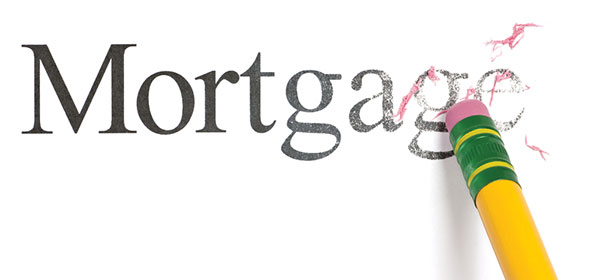Shaving years off your mortgage is on every home owner’s wish list, but can it actually translate into a solid financial strategy?
A lack of clarity around how to speed up the process is often the first hurdle but once you start the ball rolling, you’ll quickly understand that it’s far more attainable than you may have first thought.
RateCity’s Money Editor Sally Tindall believes it’s possible to slash over 10 years off your mortgage and save thousands of dollars in interest by following some simple tips.
Extra, extra, extra = one year, 11 months
One sure-fire way to turbo charge your home loan is by making extra contributions as soon as possible.
“The principal on your home loan is at its highest level in these early years, so you’re forking out the most interest at this time,” says Ms Tindall. “The sooner you start reducing the overall principal owing on your loan, the less interest you’ll ultimately hand over to your bank.”
Extra monthly repayments of just $50 on a 30-year, $300,000 loan, at a rate of 4.5 per cent will save you over $18,000 dollars and knock almost two years off the duration of your loan.
Make repayments fortnightly rather than monthly = four years, five months
Opting for fortnightly repayments instead of monthly can shorten the life of your home loan – often dramatically.
This is primarily because some banks calculate fortnightly repayments as half the monthly repayments, but also because there’s actually 26 fortnights in a year – you’re essentially tricking yourself into making two extra months’ worth of repayments.
According to Ms Tindall, it’s actually the one prank that is worth playing on yourself because of the huge financial gains – but only if that’s how your bank breaks down your payments.
“The math tells the story best,” she says. “For example, if you’ve got a $300,000, 30-year loan at an interest rate of 4.5 percent, switching to fortnightly repayments could cut over four years off your mortgage. Not only will it be paid off in a shorter space of time but you’ll end up saving more than $40,000 in interest on the loan amount as well.”
Move to a lower interest rate = three years, three months
Shopping around for a cheaper rate is often worth the trouble.
Just half-a-per cent drop from a rate of five per cent to 4.5 per cent on a $300,000 home loan will save you $90 a month or $30,000 over the life of your loan, which is great for your bank balance.
But if you’re focused on knocking years off your mortgage, you’ll need to reinvest these savings back into your loan by keeping your repayments the same.
You don’t even need to switch lenders to utilise this strategy. It can be applied every time your variable rate drops as well.
Calculate how much you’re going to save, then call your lender and tell them to keep your payments as they are, because most banks will just automatically reduce your repayments.
There are one or two potential pitfalls to watch out for, particularly if you are switching loans.
“Remember to factor in any break fees and start up fees when assessing the cost of switching,” Ms Tindall warns. “And make sure you don’t reset your loan back to a 30-year term, especially if you’re 10 or 15 years into your existing one.”
“Stringing out your mortgage like this is almost guaranteed to negate any potential savings you might make on a lower interest loan, if not put you backwards,” she adds.
Deposit a lump sum = two years, four months
Making lump sum payments is another simple strategy that can put a real dent in the amount owing on your loan.
Windfalls, such as inheritance money or the sale of investments, can strip years off your home loan. For example, a one off payment of $15,000 on a $300,000 loan, five years into a 30-year term will reduce the loan by over two years.
And annual cash injections, such as bonuses and tax returns, are often a great source of lump savings.
“We often see a spike in extra repayments after every tax year as smart savers direct their tax returns straight into the mortgage,” says Ms Tindall. “It takes a fair bit of willpower to refrain from handing it directly to your travel agent, but a mortgage-free retirement will last the rest of your lifetime, which isn’t a bad strategy at all.”
Related articles:
Will you get a mortgage over 50?
Using super to pay out a mortgage
Pros and cons of reverse mortgages


